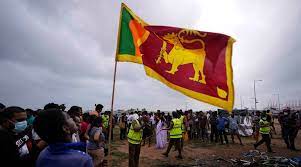Colombo, May 14: India has assured Sri Lanka to immediately supply 65,000 metric tonnes of urea to avoid any disruption in paddy cultivation in this country, as it faces the worst economic crisis in its post-independence history.
High Commissioner of Sri Lanka in New Delhi Milinda Moragoda met with the Secretary of the Department of Fertilisers Rajesh Kumar Chaturvedi in New Delhi on Thursday to discuss the supply of urea required for the current Yala cultivation season in Sri Lanka, according to media reports here on Saturday.
Moragoda thanked Chaturvedi for India’s decision to supply 65,000 MT of urea required for the current Yala cultivation season in Sri Lanka, the High Commission of Sri Lanka in New Delhi said in a message.
The Government of India has decided to supply this quantity of urea immediately to Sri Lanka at the request of the Government of Sri Lanka, despite a ban on export of urea from India, the Sri Lankan High Commission said in a statement.
High Commissioner Moragoda thanked Secretary Chaturvedi for his personal involvement in arranging necessary approvals and logistics to supply 65,000 metric tonnes of urea to Sri Lanka in consultation with the High Commissioner of India in Colombo Gopal Baglay.
In response, Chaturvedi said that his Department is always ready to support Sri Lanka in keeping with India’s ‘neighbourhood first’ policy, and that the Department is making arrangements to ship the required quantity of urea from the nearest port to Sri Lanka through a State Company coming under his purview.
The High Commissioner and the Secretary also discussed ways and means to ensure the continuous supply of chemical fertiliser from India to Sri Lanka under the existing credit line and beyond.
India has committed more than USD 3 billion to debt-ridden Sri Lanka in loans, credit lines and credit swaps since January this year.
Yala is the season of paddy cultivation in Sri Lanka that lasts between May and August.
Sri Lanka is aiming to boost its agriculture sector to avoid any disruption in the agriculture market following the drop in the paddy cultivation in the Maha session.
The Sri Lankan government banned chemical fertilisers last year as part of a phased transition towards organic agriculture. The dearth of adequate supplies of organic fertilisers affected agricultural output, especially rice and tea, and the government recently ended the ban on several key crops.
Sri Lanka’s annual fertiliser imports cost USD 400 million. Farmers across Sri Lanka have intensified their protests due to the lack of fertiliser and being compelled to abandon their farmlands.
The chemical fertiliser ban, combined with bad weather, led to falling crop yields and contributed to inflation hitting a 47-month high of 8.3 per cent in October with food inflation at 11.7 per cent, Daily Mirror, an online news portal said.
Sri Lanka has more than 2 million farmers and up to 70 per cent of its 22 million people are directly or indirectly dependent on agriculture.
Sri Lanka’s economic crisis is caused in part by a lack of foreign currency, which has meant that the country cannot afford to pay for imports of staple foods and fuel, leading to acute shortages and very high prices.
The crisis has provoked widespread protests calling for political reform and the resignation of President Gotabaya Rajapaksa.
On April 1, President Gotabaya Rajapaksa imposed a state of emergency, lifting it five days later. The government reimposed a state of emergency on May 6 after police fired teargas and arrested students protesting near parliament, which was adjourned until May 17.
Although the protests have been overwhelmingly peaceful, the police fatally shot a protester on April 19, and on several occasions have used teargas and water cannons against protesters. The authorities have made numerous arrests and repeatedly imposed curfews.
The political crisis was triggered in late March when people hurt by long hours of power cuts and essential shortages took to the streets demanding the resignation of the government.
President Rajapaksa sacked his Cabinet and appointed a younger cabinet as a response to the demand for resignation. A continuous protest opposite his secretariat has now gone on for well over a month.
On Monday, his brother Mahinda Rajapaksa resigned as the prime minister to make way for the president to appoint an interim all political party government. Ranil Wickremesinghe was appointed the country’s new prime minister on Thursday.
India has said it looked forward to working with the new Sri Lankan government formed in accordance with the democratic processes and New Delhi’s commitment to the people of the island nation will continue. (PTI)
Trending Now
E-Paper


